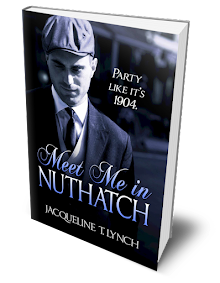
This is the statue of Comte de Rochambeau which stands in King’s Park, Newport, Rhode Island. A life-size bronze statue, it was dedicated in 1934. According to the Federal Writer’s Project book on Rhode Island (one of those invaluable guides by that army of out of work writers during the Depression), it is a replica of Fernand Hamer’s statute of Rochambeau in Vendôme, France. It commemorates the landing of the French allies on July 10, 1780, who played an important part in our Revolutionary War.
Rhode Island played a part in the beginning of the first Navy in what would be the United States, but only after a frustrating period of harrassment by the British fleet in Newport Harbor since 1774. Two American ships, called The Washington and the Katy, and the only fort in the colony of Rhode Island at this time, on Goat Island, were the beginning of defense against the British at this time.
On December 7, 1776, a British fleet sailed into the Bay and occupied Newport. The young American fleet was blockaded in Providence, and never again went to sea. Attempts by General George Washington to come to the aid of Newport in 1778, along with a fleet sent by the French Comte Jeane Baptiste d’Estaing failed. The British fleet left of their own accord in 1779. The following year, Comte de Rochambeau arrived in Newport and stayed to provide protection and immense relief to the colony.
Rochambeau left Newport when his troops joined Washington in New York, and were on hand at the final defeat of the British. Having placed his French troops under the command of Washington, when the British attempted to snub Washington while surrendering at Yorktown by offering their surrender to Rochambeau instead, the Comte graciously redirected Cornwallis’ man to General Washington.
Afterward the Congress of the Confederation thanked Rochambeau, who returned to France, was but was nearly guillotined in the Reign of Terror after the French Revolution.
Napoleon Bonaparte pardoned him.
The United States remembered Rochambeau with other statues, and in the World War II transport ship, the USS Rochambeau.
Newport remembers as well when the friendly foreign navy brought friendship and confidence in a most perilous endeavor. In 2005, Newport celebrated the 225th anniversary of the 1780 arrival of Rochambeau and his troops.
Tuesday, January 15, 2008
Rochambeau and Rhode Island
Posted by
Jacqueline T. Lynch
at
7:48 AM
![]()
Labels: 18th Century, Revolutionary War, Rhode Island
Subscribe to:
Post Comments (Atom)







No comments:
Post a Comment